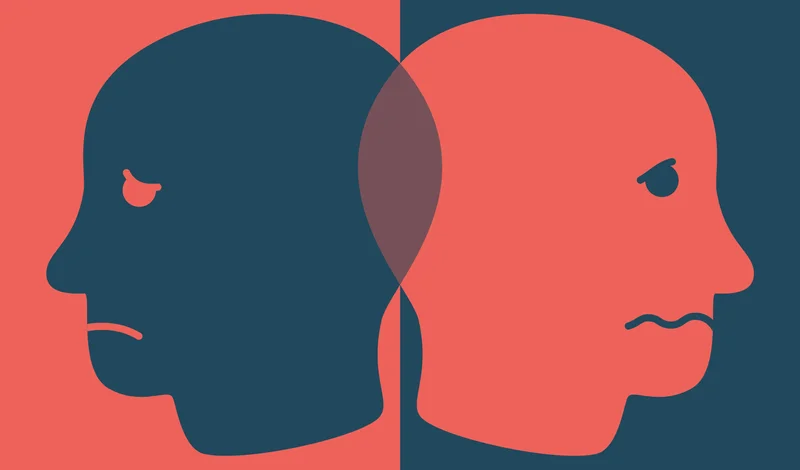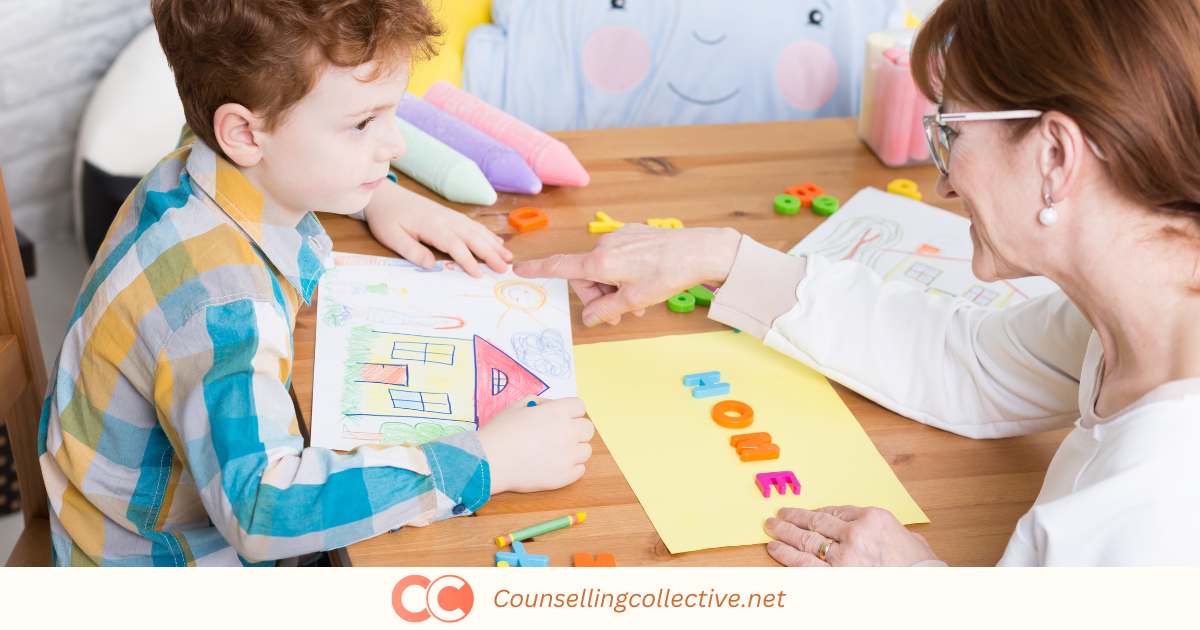Contents
Introduction

Relational-Cultural Therapy (RCT): Techniques, Applications, and Effectiveness
Relational Cultural Theory (RCT) places relationships at the core of human psychology, exploring how connections and disconnections shape psychological experiences. It emphasizes the significance of understanding relationships through the lenses of cultural and social contexts, recognizing the impact of power dynamics and broader cultural influences on relationship quality and individual well-being. This essay will analyze how RCT’s relational perspective contributes to psychology, focusing on its implications for conflict transformation and peacebuilding.
This article explores the foundational principles of Relational-Cultural Therapy, its key techniques, applications in different therapeutic contexts, and its effectiveness. It will also address common misconceptions and criticisms while highlighting how this approach fosters growth through connection.
What is Relational-Cultural Therapy?
Relational-Cultural Therapy focuses on the idea that human beings are hardwired for connection. Developed by Jean Baker Miller and her colleagues at the Stone Center at Wellesley College, RCT emerged from feminist therapy and critical theories, emphasizing that relationships are central to psychological health. The therapy aims to help individuals build more meaningful and mutually supportive connections. In practice, RCT focuses on helping clients recognize and overcome disconnections in their relationships, fostering a sense of mutual empowerment and empathy between individuals.
Why is Relational-Cultural Therapy Important?
RCT challenges the dominant cultural ideals of individualism and self-sufficiency by promoting the understanding that connection and relationship are vital to psychological health. This therapy is especially important for individuals who have experienced marginalization, trauma, or isolation, as it emphasizes healing through relational dynamics. RCT creates space for individuals to foster mutual empathy and empowerment, allowing for personal growth within the context of connection. It’s particularly useful in addressing relational ruptures, encouraging clients to engage in and repair meaningful, supportive relationships.
Real-Life Example: A woman experiencing loneliness and disconnection in her social relationships seeks therapy. Through RCT, she explores how past relational traumas have shaped her expectations of others, often leading her to withdraw. With the help of her therapist, she practices mutual empathy in her relationships, learning to trust and open up again. Over time, she begins to form deeper connections, leading to a greater sense of belonging and emotional stability.
Core Concepts
- Relational-Cultural Disconnections: Disconnections occur when relationships become alienating, invalidating, or unhelpful. These gaps in relationships can lead to feelings of isolation and emotional distress. RCT aims to address these issues by nurturing relationships that emphasize mutual respect and empathy. The therapy seeks to repair and transform disconnections into supportive and empowering connections. By doing so, RCT contributes to emotional recovery and personal development.
- Power and Privilege in Relationships: RCT addresses power imbalances and privilege within relationships by promoting equality and fairness. It encourages individuals to recognize and challenge oppressive dynamics and power structures. This focus on dismantling imbalances aims to create more equitable and supportive relational environments. The therapy emphasizes the need for balanced power dynamics to foster healthy and empowering interactions.
- Mutual Empowerment: Mutual empowerment in RCT is about fostering growth and support within relationships where both parties benefit equally. Unlike models that focus on control or dominance, RCT emphasizes that empowerment arises from shared growth and mutual support. This approach ensures that both individuals in a relationship are uplifted and empowered through their interactions. It promotes a collaborative and supportive dynamic, enhancing overall relational health.
Techniques Used in Relational-Cultural Therapy
- Empathic Listening: Involves fully concentrating on the client’s words and feelings, demonstrating understanding without judgment. This technique helps trauma survivors feel validated and supported by creating a safe space for them to express their emotions.
- Validating Emotions: Acknowledges and confirms the client’s feelings as legitimate and understandable. This process helps clients feel heard and respected, which can alleviate emotional distress and reinforce their sense of worth.
- Mutual Empathy Exercises: Includes activities where both therapist and client share and explore each other’s experiences and emotions. These exercises strengthen relational bonds and support marginalized individuals by fostering a sense of mutual understanding and validation.
- Rebuilding a Sense of Belonging: Focuses on helping clients reconnect with meaningful relationships and social networks. This technique addresses feelings of isolation by creating opportunities for supportive interactions, enhancing emotional well-being.
- Journaling to Reflect on Relationships: Encourages clients to write about their relationships and emotional experiences. This practice aids in identifying patterns and insights into relational dynamics, supporting personal reflection and growth.
Notable Figures in Relational-Cultural Therapy
Jean Baker Miller: Founder of RCT, Miller authored Toward a New Psychology of Women, challenging traditional individualistic psychological models. Her work emphasized the central role of relationships in human development and advocated for a paradigm shift towards relational psychology.
Judith V. Jordan: A pivotal figure in RCT, Jordan focuses on mutual empathy and the transformative power of connection in therapy. She integrates RCT into feminist psychology, emphasizing relational dynamics as crucial for emotional healing and growth.
Irene Stiver: Stiver contributed significantly to RCT by examining how disconnection contributes to psychological distress. Her research highlights the importance of mutual empathy and relational practices in effective therapeutic interventions.
Janet Surrey: Surrey advanced RCT by exploring relational-cultural dynamics and the role of empathy in fostering therapeutic change. Her work underscores how empathy in therapy can lead to profound healing and personal growth.
Jean Baker Miller- Image Source: cfmedicine.nlm.nih.gov

Theories Influenced by Relational-Cultural Therapy
- Solution-Focused Brief Therapy (SFBT): Focuses on finding solutions rather than exploring problems. RCT enhances SFBT by emphasizing the role of relational connections and mutual understanding in identifying and achieving solutions.
- Person-Centered Therapy: Focuses on creating a supportive, empathetic therapeutic environment. RCT influences this approach by emphasizing the mutual relational aspects and the importance of genuine, empathetic connections in the healing process.
- Interpersonal Therapy (IPT): Addresses interpersonal relationships and their impact on mental health. RCT enhances IPT by emphasizing the role of relational connections in emotional regulation and the importance of mutual empathy in therapeutic relationships.
- Gestalt Therapy: Emphasizes awareness and present-moment experience. RCT influences Gestalt Therapy by integrating the relational aspects of therapy and focusing on how mutual understanding and connection can enhance therapeutic outcomes.
- Existential Therapy: Explores meaning and individual freedom. RCT influences existential therapy by focusing on the relational aspects of meaning-making and how mutual empathy can support existential exploration and growth.
Applications of Relational-Cultural Therapy

Trauma Survivors
(RCT) is highly effective for trauma survivors, as it emphasizes the healing power of connection. Trauma often causes feelings of isolation and disconnection from others. RCT fosters safe, supportive relationships that encourage mutual growth and empathy, which is crucial for trauma recovery.
Example: A trauma survivor might work with their therapist to build a supportive relationship where they feel understood and validated. Through practices like empathic listening and validating the client’s emotions, the survivor begins to trust others and rebuild their capacity for relational connection, aiding in their healing journey.
Image Source: yellowbrickprogram.com
RCT is particularly valuable for marginalized individuals, such as racial minorities, LGBTQ+ individuals, and those with disabilities. It helps address the relational disconnections that occur due to systemic oppression and societal marginalization, providing a framework for building empowering relationships that promote resilience.
Example: An LGBTQ+ client might explore their experiences of marginalization with their therapist. By engaging in mutual empathy exercises, they can discuss how societal disconnection has impacted their well-being, while the therapist provides validation and support.
Image Source: .verywellmind.com

Marginalized Individuals

Depression and Anxiety
RCT is often used to treat depression and anxiety by addressing relational disconnections that contribute to these conditions. By fostering stronger connections and promoting mutual empathy, clients experience improved emotional regulation, reducing symptoms of depression and anxiety.
Example: A person experiencing depression might use journaling as part of their therapy to reflect on meaningful relationships and identify ways to strengthen them. The therapist guides the client in understanding how disconnection has contributed to their depressive symptoms, helping them rebuild a sense of belonging and improve emotional well-being.
Image Source: flowneuroscience.com
Common Myths about Relational-Cultural Therapy
| Myth | Explanation |
| RCT focuses too much on relationships | While relationships are central in RCT, the therapy also highlights personal growth within connections. It’s about interdependence rather than dependency, recognizing individuality. |
| Only women benefit from RCT | Although RCT emerged from feminist therapy, its principles of connection, empathy, and empowerment apply universally, regardless of gender. Men, non-binary individuals, and others can equally benefit. |
| RCT neglects individual autonomy | RCT balances individual autonomy and relational growth, supporting the idea that personal healing is enhanced through connections, not at the expense of one’s independence. |
| It’s only for people with relationship problems | RCT applies broadly, even for those not explicitly struggling with relationships. It focuses on enhancing emotional resilience and personal well-being through deeper connections. |
Criticisms of Relational-Cultural Therapy
- Overemphasis on Relationships: Critics argue that RCT may overlook the importance of individual autonomy and personal independence, placing too much emphasis on relationships as the primary mode of healing. While relational connections are central to RCT, some believe that the model could better integrate individualistic elements of psychological growth, ensuring that personal development isn’t overshadowed by the focus on mutuality and connection.
- Limited Research Base: Despite its growing support, particularly in feminist therapy and social justice contexts, some critics believe that RCT lacks the rigorous empirical research required for widespread acceptance in mainstream therapeutic settings. They suggest that more comprehensive, evidence-based studies are necessary to validate the effectiveness of RCT and its application across a broader range of clinical settings.
- Applicability Across Cultures: RCT’s focus on connection, mutuality, and interdependence may not align with cultures that prioritize individualism and personal achievement. Critics argue that RCT may need further cultural adaptation to better resonate with diverse populations, ensuring that its core principles can be effectively applied in culturally inclusive ways across different societal and cultural contexts.
Conclusion
Relational-Cultural Therapy (RCT) offers a compelling and nuanced approach to healing through connection, mutual empowerment, and the cultivation of meaningful relationships. By focusing on the relational dynamics that either foster or hinder psychological growth, RCT provides valuable tools for addressing complex issues like isolation, marginalization, and trauma, particularly in marginalized or underserved populations. Its emphasis on mutual empathy, shared understanding, and the healing power of relationships highlights how people can thrive in connection, offering a model of therapy that promotes personal, relational, and community-based transformation. While RCT has faced criticisms for its perceived overemphasis on relationships and its relatively limited research base, its foundational principles continue to resonate in areas like feminist therapy
References
- Comstock, D. L., Hammer, T. R., Strentzsch, J., Cannon, K., Parsons, J., & Salazar, G. (2008). Relational-Cultural Theory: A framework for bridging relational, multicultural, and social justice competencies. Journal of Counseling & Development, 86(3), 279-287.
- Jordan, J. V. (2009). Relational-Cultural Therapy. American Psychological Association.
- Jordan, J. V. (2017). Relational-cultural therapy: Theory, research, and application to practice. American Psychological Association.
- Miller, J. B. (1986). Toward a new psychology of women. Beacon Press.
- Miller, J. B., & Stiver, I. P. (1997). The healing connection: How women form relationships in therapy and in life. Beacon Press.
- Walker, M. (2004). How therapy helps when the culture hurts. Women & Therapy, 27(1-2), 91-107.
- Hartling, L. M., Rosen, W. B., Walker, M., & Jordan, J. V. (2000). Shame and humiliation: From isolation to relational transformation. The Family Journal, 8(4), 367-374.
- Duffey, T. H., Haberstroh, S., & Trepal, H. (2009). Relational-Cultural Theory and supervision: Evaluating relational dynamics in graduate training. Journal of Creativity in Mental Health, 4(3), 256-271.
- Liang, B., Tracy, A., Taylor, C. A., Williams, L. M., Jordan, J. V., & Miller, J. B. (2002). The relational health indices: A study of women’s relationships. Psychology of Women Quarterly, 26(1), 25-35
- Jordan, J. V. (2001). A relational-cultural model: Healing through mutual empathy. Bulletin of the Menninger Clinic, 65(1), 92-103.
Explore more Theories & Therapies







